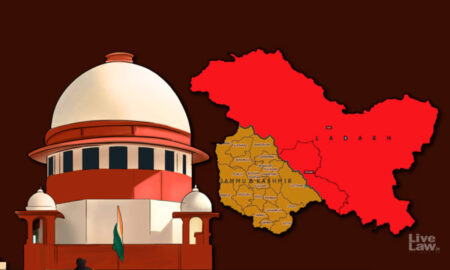Orissa lawyers were ordered by The Supreme Court to return to work or face contempt charges and license suspension.

Lawyers across the state boycotted their respective courts on Monday, effectively shutting down judicial activity, including that of the Orissa High Court, in protest of the State government’s decision to abolish the benches of the State Administrative Tribunal.
A dispute over names recommended by the Orissa High Court collegium to the Supreme Court for elevation as judges has enraged the state’s lawyers. Since October 14, the Orissa High Court Bar Association has been boycotting court in order to reform the collegium system.
As a result of the boycott, the Orissa High Court has filed contempt proceedings against officers of the Orissa High Court Bar Association and various District Bar Associations.
In comparison to the High Court collegiums in Orissa and Rajasthan, the collegiums in Uttar Pradesh, Kerala, Madras, Bombay, and Karnataka have a success rate of more than 70%. Does the dramatic difference in success rates reflect the quality of the collegiums’ recommendations?

We don’t know for sure because the Supreme Court collegium rarely explains its decisions. In ten cases, the candidates were rejected because they did not meet the required income level. The Supreme Court collegium cited age-related reasons on the other four occasions. It is unknown why the other 126 candidates were rejected.
The collegiums of both the High Courts and the Supreme Court are responsible for filling vacancies on time. Because the judiciary has so dominantly asserted its power to appoint judges, it must also bear the burden of clarification when the High Courts are not fully operational.
This is not to say that all candidates recommended by High Court collegiums should be appointed. However, if a High Court collegium finds a candidate suitable, the Indian people have a right to know why that person was not appointed.
The Supreme Court of India slammed lawyers striking in Odisha over a long-standing demand for a permanent bench of the Orissa High Court in the western part of the state, at Sambalpur, on Monday.

The Bench, which included Justices Sanjay Kishan Kaul and Abhay S. Oka, ordered the lawyers to return to work on Wednesday, warning that failure to comply with the order and “fall in line” would result in the Supreme Court finding the lawyers guilty of contempt of court and even suspending or canceling their licenses.
“Even if it means suspending 200-300 advocates,” Justice Kaul said, expressing his deep dissatisfaction. “On occasion, members of the bar associations of other districts, not just Western Odisha, have not participated in regular court proceedings,” the Court observed.
The counsel for the Odisha Bar Council confirmed that up to twenty district bars had refused to appear in court. This is not the first time the Supreme Court has ordered striking lawyers to return to work in Odisha.

Previously, another Bench led by Justice Kaul directed the Bar Council of India and the Odisha Bar Council to take appropriate action against advocates who had abstained from court work for breach of duty and obstruction of the judicial process in 2020.
The source of the uproar has largely remained the same. According to reports, the lawyers claim that, despite the Centre’s request for a comprehensive proposal for the establishment of a permanent bench in Western Odisha, the state government has made no attempt to provide such a proposal.
Read More: India’s first-ever Formula E world championship in Hyderabad












